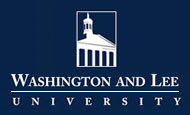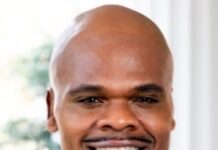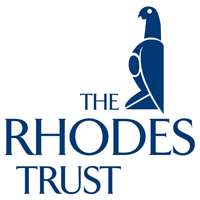 This past spring several law students at Washington and Lee University in Lexington, Virginia, sent a letter to the board of trustees protesting the presence of ornamental Confederate battle flags on campus and the university’s holding of classes on Martin Luther King Day. The students also called for a ban on students marching across campus in Confederate uniforms on Lee-Jackson Day. They also wanted the university to apologize for its role in slavery. The students said that if their demands were not met, they would begin acts of civil disobedience in September.
This past spring several law students at Washington and Lee University in Lexington, Virginia, sent a letter to the board of trustees protesting the presence of ornamental Confederate battle flags on campus and the university’s holding of classes on Martin Luther King Day. The students also called for a ban on students marching across campus in Confederate uniforms on Lee-Jackson Day. They also wanted the university to apologize for its role in slavery. The students said that if their demands were not met, they would begin acts of civil disobedience in September.
On July 8, Kenneth P. Ruscio, president of Washington and Lee University, released an eloquent response to the university community. In the address, he agreed to remove the ornamental flags from the university’s Lee Chapel (where Robert E. Lee is buried). An actual flag used by the Confederate army will be displayed on a rotating basis in the Lee Chapel museum.
President Ruscio called the university’s involvement with slavery “a regrettable chapter of our history.” He noted that the university owned 70 to 80 slaves and benefited from their labor and in some cases financially from their sale. “Acknowledging that historical record,” President Ruscio said, “will require coming to terms with a part of our past that we wish had been different but that we cannot ignore.”
President Ruscio stated that he would allow the undergraduate faculty to make the decision on whether classes should be held on Martin Luther King’s birthday. But he recommended that classes be continued on that day. He wrote: “The question has never been whether or not we ‘fully recognize’ King Day; the question is how we choose to honor Dr. King. For many years, we have offered both the W&L and Lexington communities an impressive array of presentations, service projects and performances to commemorate Dr. King’s life. I worry that this compelling series of events would give way to an uneventful three-day weekend. Canceling classes may have symbolic significance; I prefer the substance of our current programs over the symbolism of a day off.”










The history of slavery in a America is the legacy of how this country was built. There is no place in this country where this legacy is not present. If we look closely at how this society operates you can see the legacy in everyday life. There is always this legacy in our educational institutions our communities and how communicate with our families, friends and those who continue to benefit from its legacy. America must continue to push this society to redefine the narrative.